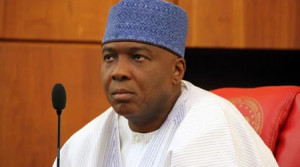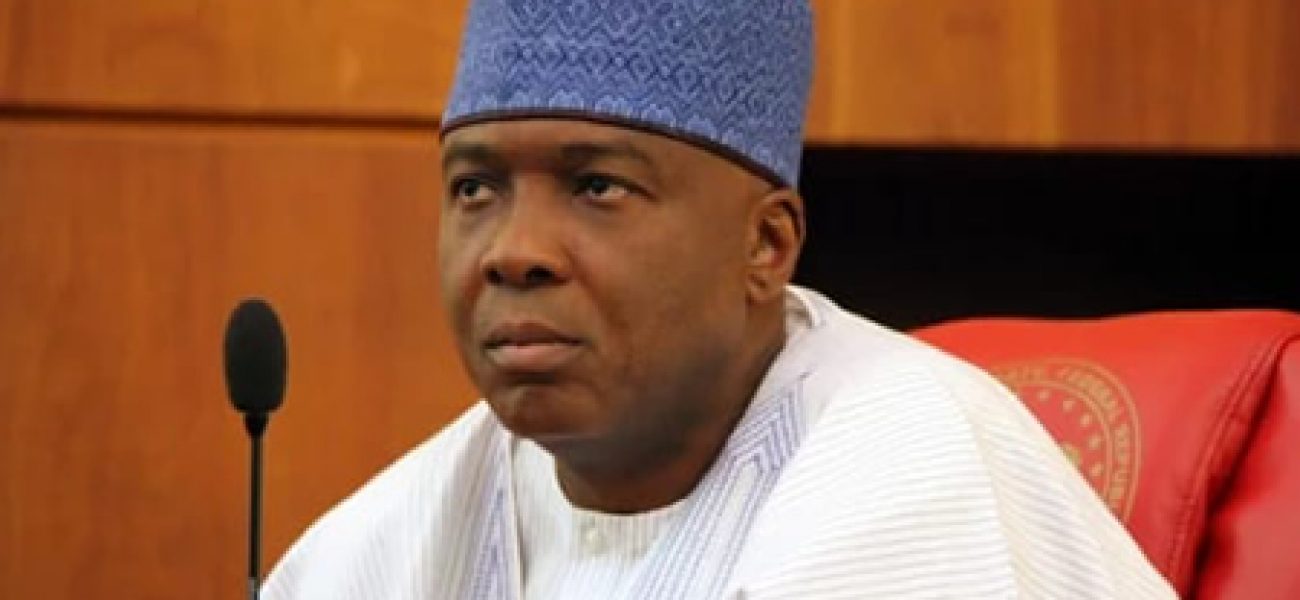 There have been controversies following the Code of Conduct’s Bureau’s 13-count charge against the Senate President, Bukola Saraki on September 16, 2015. Among others, the charges include that the Senate President made false declarations in the forms submitted to the Code of Conduct Bureau before and after his term of office as Governor of Kwara State in 2003 and 2011 respectively. He is also accused of making anticipatory declarations of properties he did not own at the time he first became a Governor in 2003 and refusing to disclose some of the properties he acquired at the end of his tenure as Governor in 2011. Additionally, he is accused of operating a foreign account abroad in breach of the Code of Conduct Bureau and Tribunal Act, 2004.
There have been controversies following the Code of Conduct’s Bureau’s 13-count charge against the Senate President, Bukola Saraki on September 16, 2015. Among others, the charges include that the Senate President made false declarations in the forms submitted to the Code of Conduct Bureau before and after his term of office as Governor of Kwara State in 2003 and 2011 respectively. He is also accused of making anticipatory declarations of properties he did not own at the time he first became a Governor in 2003 and refusing to disclose some of the properties he acquired at the end of his tenure as Governor in 2011. Additionally, he is accused of operating a foreign account abroad in breach of the Code of Conduct Bureau and Tribunal Act, 2004.
By law, the functions of the Bureau [1] include receiving and examining asset declarations by public officers to ensure[2] compliance with the requirements of the Act. Public officers such as the Senate President are also required to declare assets within fifteen months of taking office and after every four years in a written declaration. The declaration must also specify all properties, assets, liabilities of the public officer, his spouse and unmarried children below the age of 21.
The Act also gives the Tribunal wide-ranging powers such as the powers to remove a public officer from an elective or nominated office, disqualify him from holding a public office within a period of ten years and the powers to seize any property acquired as a result of an abuse of office[3].
However, the Senate President’s lawyers had argued that the Code of Conduct Tribunal failed to properly institute the proceedings against the Senate President since the Attorney General’s consent was not obtained. This is because section 24 of the Code of Conduct Bureau and Tribunal Act, 2004 states that proceedings must be instituted in the name of the Federal Republic of Nigeria by the Attorney General of the Federation and there has been no Attorney-General since the inauguration of the new government in May. They had also argued that the Court was not properly constituted, as the Act requires that the Chairman sits with two members[4]. However, the Chairman of the Tribunal has stated that a Chairman and a member properly constitute the Court.
The Senate President was also criticised by some for failing to attend the Tribunal and give his plea at the initial hearing of the matter consequent upon which the Chairman of the Tribunal, Danladi Umar issued a bench warrant ordering the Inspector General of Police to produce the Senate President at the next hearing of the Tribunal on September 22, 2015.
While the trial of the case has been scheduled for October 21, 2015 the Senate President has expressed fears that there are political undertones behind his prosecution since he is an advocate against corruption and that the Tribunal is acting under external influence rather than being an impartial judicial body. The Senate has also responded to what it views as an attack against its leadership by passing a vote of confidence on the Senate President at its first sitting at resumption of plenary on September 29, 2015.
[4] Section 3(a) Code of Conduct Tribunal Act, 2004
[5] Section 3(b) Code of Conduct Tribunal Act, 2004
[6] Section 23 Code of Conduct Tribunal Act, 2004
[7] Section 20(2) Code of Conduct Tribunal Act, 2004

